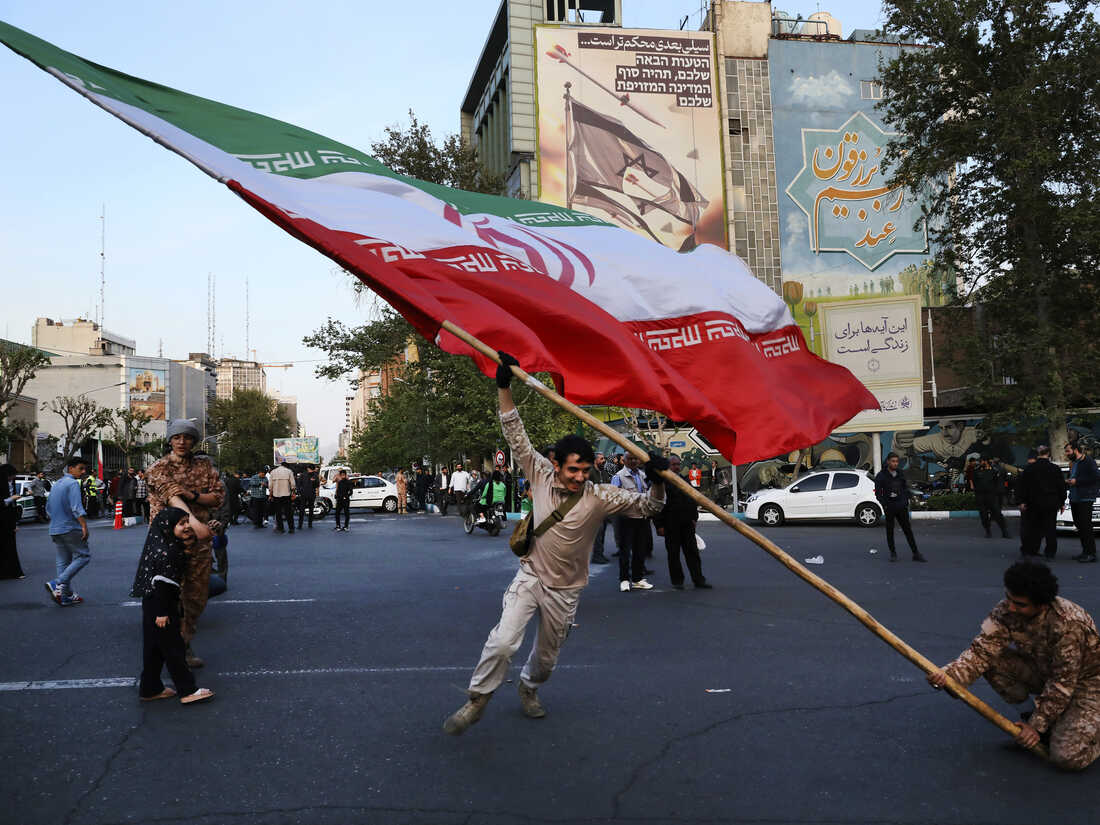Israel launches missile strikes into Iran in response to Tehran’s attack Sunday
Demonstrators wave a huge Iranian flag in their anti-Israeli gathering in front of an anti-Israeli banner on the wall of a building at the Felestin (Palestine) Sq. in Tehran, Iran, Monday, April 15, 2024.
Vahid Salemi/AP
hide caption
toggle caption
Vahid Salemi/AP
Demonstrators wave a huge Iranian flag in their anti-Israeli gathering in front of an anti-Israeli banner on the wall of a building at the Felestin (Palestine) Sq. in Tehran, Iran, Monday, April 15, 2024.
Vahid Salemi/AP
The Israeli military has conducted missile strikes against Iran, a senior U.S. military official told NPR on Thursday. There are also reports of explosions in Iraq and Syria.
The strikes appear to be the response Israel vowed to carry out after an Iranian attack on Sunday, when Tehran fired hundreds of drones and missiles at Israel. Most of Iran’s volleys were intercepted or caused little damage. The U.S. military official spoke on condition of anonymity Thursday.
Iran’s Fars News Agency says explosions were heard in the central city of Isfahan, according to the Reuters News Agency.
The extent of Israel’s strikes and the weapons used weren’t clear.
The U.S. and other western allies had been urging Israel to forego a military strike to avoid a regional conflict springing out of the Israel-Hamas war.
Those concerns rose when an air strike – which Iran blamed on Israel – killed two Iranian military commanders in the country’s consulate in Damascus, Syria, on April 1.
Iran said Sunday’s attack on Israel was in response to that.
The region has been on the edge of wider conflict since Hamas attacked Israel Oct. 7, which Israel says killed 1,200 people, and Israel’s subsequent invasion of Gaza, which has killed more than 30,000 people according to Gaza health officials.
Israel and Iran-backed Hezbollah have traded frequent fire over the northern Israel border. Houthi militants, also backed by Iran, have been going after international commercial vessels passing through the Red Sea in recent months. The group’s leaders claim they’re targeting ships with links to Israel in response to the country’s ongoing invasion of Gaza.
